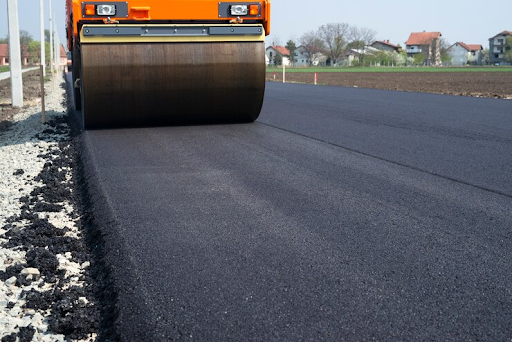Maintaining a pristine, well-paved surface is essential for any commercial property. It not only enhances the aesthetic appeal but also ensures safety and longevity. When it comes to commercial asphalt resurfacing, making the right choice can significantly impact your investment. Let’s delve into the crucial factors to consider before diving into asphalt paving projects.
Assessment of Existing Surface:
Before embarking on any resurfacing endeavor, it’s imperative to conduct a thorough assessment of the existing asphalt surface. Look for signs of wear and tear, cracks, potholes, and drainage issues. Understanding the current condition sets the stage for the most effective resurfacing strategy.
Traffic Volume and Usage:
Commercial properties vary in terms of traffic volume and usage patterns. Consider the amount and types of vehicles that traverse the asphalt surface daily. High-traffic areas such as parking lots or industrial zones demand durable resurfacing solutions capable of withstanding heavy loads and frequent use.
Climate and Weather Conditions:
Climate plays a pivotal role in determining the longevity and performance of asphalt surfaces. Factors such as temperature fluctuations, rainfall, snow, and UV exposure can impact the durability of the pavement. Choose asphalt resurfacing materials and techniques tailored to withstand the prevalent weather conditions in your region.
Budgetary Constraints:
As with any business decision, budgetary considerations weigh heavily in the selection process. Evaluate the costs associated with different asphalt resurfacing options, including materials, labor, and maintenance. While it’s essential to stay within budgetary constraints, prioritize quality and longevity to avoid recurring expenses in the long run.
Environmental Impact:
In today’s eco-conscious landscape, environmental sustainability is a critical aspect of any construction project. Explore environmentally friendly asphalt paving solutions that minimize carbon footprint and utilize recycled materials wherever feasible. Balancing environmental responsibility with functional requirements ensures a sustainable approach to commercial asphalt resurfacing.
Contractor Expertise and Reputation:
The success of any asphalt resurfacing project hinges on the proficiency and reputation of the contractor. Research potential contractors thoroughly, assessing their experience, qualifications, and track record. Opt for reputable professionals with a proven history of delivering high-quality results within stipulated timelines.
Regulatory Compliance:
Compliance with local regulations and zoning laws is non-negotiable in commercial asphalt resurfacing projects. Familiarize yourself with relevant permits, codes, and environmental regulations governing construction activities in your area. Ensure that your chosen resurfacing solution aligns with regulatory requirements to avoid potential legal hassles down the road.
Long-Term Maintenance Plan:
Asphalt surfaces require regular maintenance to preserve their integrity and functionality. Develop a comprehensive long-term maintenance plan encompassing routine inspections, crack sealing, seal coating, and periodic repairs. Investing in proactive maintenance measures extends the lifespan of your asphalt surface and mitigates costly repairs in the future.
Aesthetics and Brand Image:
The visual appeal of your commercial property leaves a lasting impression on clients, customers, and visitors. Select asphalt resurfacing materials and designs that complement the overall aesthetic and branding of your business. Whether it’s incorporating decorative elements or branded signage, prioritize aesthetics to enhance your brand image.
Future Expansion and Growth:
Anticipate future expansion and growth when planning asphalt resurfacing projects for commercial properties. Consider whether the existing surface can accommodate increased traffic or expansion plans in the foreseeable future. Opt for flexible resurfacing solutions that facilitate seamless integration with future development initiatives.
Conclusion
Commercial asphalt resurfacing is a multifaceted endeavor that demands careful consideration of various factors. By assessing the existing surface, understanding traffic patterns, accounting for climate conditions, and prioritizing sustainability and budgetary constraints, you can make informed decisions that maximize the value and longevity of your investment. Partnering with reputable contractors and ensuring regulatory compliance further enhances the success of your resurfacing project. Remember, proactive maintenance and a focus on aesthetics contribute to creating a safe, durable, and visually appealing asphalt surface that reflects positively on your business.

